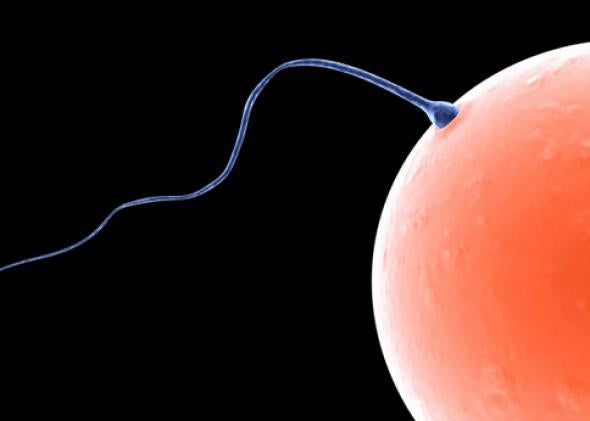From movies like The Kids Are All Right and Delivery Man to the MTV reality show Generation Cryo, donor-conceived children in fiction and real life are growing up and attempting to find out where they came from. But what about all of the kids who don’t know how they were conceived? As we write in our new book, Finding Our Families, a majority of married straight couples still don’t tell their children if they used donor eggs or sperm to get pregnant.
Secrecy has long been intimately intertwined with donor conception. Once upon a time, non-disclosure was standard. Almost no one talked about whether they had used a donor, and the donors themselves didn’t worry that their biological offspring might come knocking. This culture of secrecy meant that many parents with donor-conceived children didn’t think about disclosure, because no one ever told them that it might be the right thing to do for their children. Most children didn’t know they were donor-conceived, so they never asked questions. Sperm banks and, more recently, egg donation programs drew on traditional adoption practices and beliefs—keeping health or genetic information private, never telling the adopted that they were not the biological children of their parents. Keeping the secret was seen as protecting the entire family from stress and pain.
The adoption world moved long ago towards telling children the truth about their origins, but change has been much slower for the donor-conceived. While professional organizations now advocate disclosure, some parents still struggle with whether, when, and how to tell, and many still will not do so.
Parents have a number of reasons to worry about telling, and have told us:
I don’t want to confuse my child and disrupt her normal childhood.
I don’t want to revisit those uncomfortable feelings of shame about infertility. If I tell my child, then I’ll have to tell family members and friends as well.
I know I probably should tell, but I fear my child will become angry and reject me when she finally finds out. She might feel more connected to her genetically related parent and not to me.
I don’t think my child needs to know unless the fact of her donor conception becomes important, such as for medical reasons.
My partner and I disagree over whether to disclose.
I worry that telling is not the end of the dialogue or the story, and that I may be unable to answer my child’s questions about her genetics or ancestry, so better not to begin the conversation at all.
I don’t want my child to think that genetics are all that important.
So, yes, the decision to talk about donor conception, even if you value familial honesty, can be hard. But according to a new study of egg-donor families by researchers at Weill-Cornell Medical College, early disclosure is best for the whole family. Researchers found that parents who told their children before they turned 10 reported no anxiety relating to disclosure and expressed full confidence that they had done the right thing. By contrast, among the non-disclosing families, there were high levels of anxiety as they waited for the “right time” to tell, and found themselves confronting the challenge of disclosing to teenagers or young adults.
And in a systematic review of 43 studies on the disclosure decision-making process for heterosexual couples who had used donor eggs, sperm, and embryos, researchers found that the parents who disclosed emphasized children’s best interests, their rights to know that they are donor-conceived, honesty as an essential component of the parent-child relationship, and the stress inherent in keeping a secret. By contrast, while those parents who had not disclosed also emphasized the best interests of their children, they saw no benefit from disclosure and wanted to protect the child from stigma or other damage. In some families, of course, disclosure decisions are fairly easy. Donor conception is difficult to hide in single parent and LGBT families, and research shows that children in those families learn at an earlier age than do children in heterosexual families. It’s the increasing number of these non-“traditional” families that has helped bring much more openness to the donor conception process.
As we write in our book, not telling your child does not render the fact of the conception irrelevant. Reminders about donor conception will frequently come up, perhaps as you or others try to figure out why your child is so tall, or so good at math, or so outgoing. When your pediatrician asks about your child’s medical history, you will have to lie. You may feel uncomfortable when friends talk easily about how much their children look like them, or when they share with you their struggles on how to explain to their children how Daddy planted that seed in Mommy’s belly.
This secrecy around donor conception is a heavy load to carry, and the layers of deception build up. The best-kept secret can warp family life, filling children with anxiety they don’t understand, and parents with guilt. In an effort to protect kids they love from what parents perceive as the difficult truth of their origins, parents are hurting them—and the parent-child bond—instead.
Naomi Cahn is the Harold H. Greene Professor at George Washington University Law School. Wendy Kramer is the co-founder and director of the Donor Sibling Registry.
